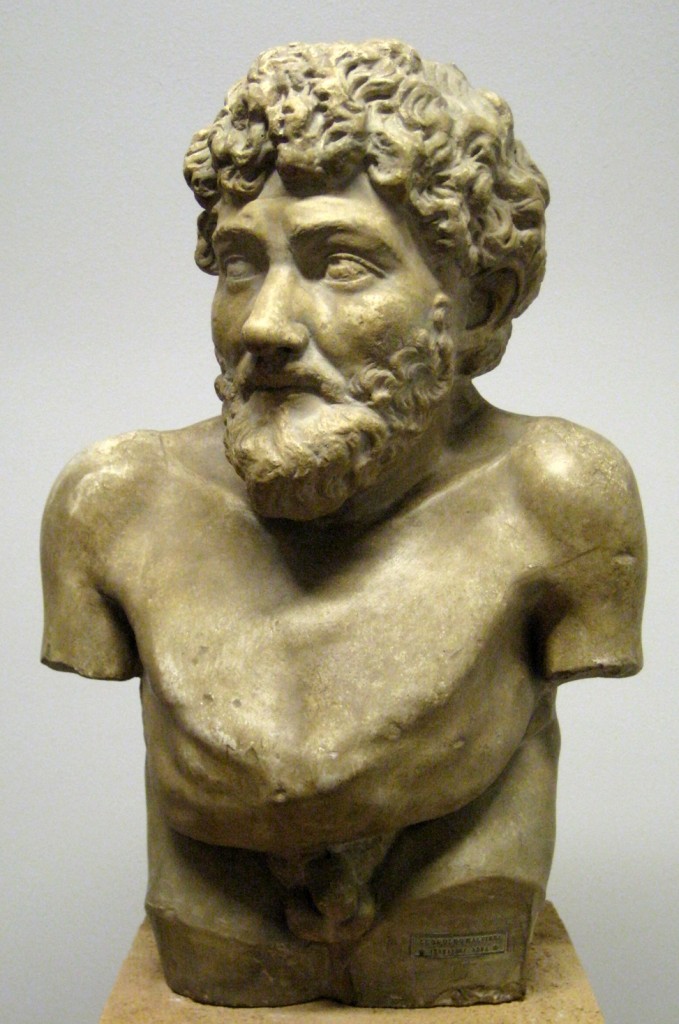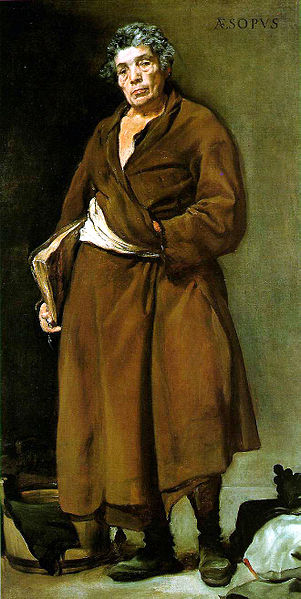"He, by announcing a story which everyone knows not to be true, told the truth by the very fact that he did not claim to be relating real events."
-Philostratus, Life of Apollonius of Tyana, Book V:14

Aesop, Villa Albani Collection, Rome
Lived From 620-564 BC
Fabulist, Storyteller
Credited For Writing Over 684 Fables, Known as "Aesop's Fables"
Aesop's fables are known for conveying life wisdom and moral strategy through entertaining stories of interactions between animals. "The Tortoise and The Hare" for example, is one of the more famous of Aesop's fables.
(Readers should know there is great debate as to whether or not Aesop ever existed. We'll leave that conclusion up to you.)
Memorable Quotes:
“It is one thing to conceive a good plan, and another to execute it”
"Better be wise by the misfortunes of others than by your own."
"Every truth has two sides; it is as well to look at both, before we commit ourselves to either."
History:
-Early sources including Aristotle indicate Aesop was born on the Black Sea Coast of Thrace, which is present-day Turkey & Bulgaria.

"Aesop", Velázquez, 1599–1660, Prado Museum
-Many works described him as being remarkably ugly, noted also for being a hunchback.
-He was believed to be a slave early in his life, owned by two consecutive masters.
-Fictional biography, "The Aesop Romance", describes the slave Aesop treating a woman with kindness, who later revealed herself to be the goddess Isis. She grants Aesop the power of speech and the gift of storytelling.
-Aesop uses his gift of speech and storytelling to argue in defense of a wealthy businessman. His advocacy buys him his freedom.
-For his knowledge and ability to express common wisdom in the form of short, entertaining stories, he was sought out by King Croesus of Lydia, to engage in diplomatic missions.
-Following his work with King Croesus, he became a diplomatic servant and adviser to other kings and city-states.
-In his demise, it is said he was thrown from a cliff for the reasons of telling stories meant to insult, and for a temple-theft.
In Perspective:
-1st century AD philosopher Apollonius, is recorded as having said the following about Aesop:
"Like those who dine well off the plainest dishes, he made use of humble incidents to teach great truths, and after serving up a story he adds to it the advice to do a thing or not to do it...he by announcing a story which everyone knows not to be true, told the truth by the very fact that he did not claim to be relating real events."
-Philostratus, Life of Apollonius of Tyana, Book V:14
-A full list of Aesop's Fables can be found at AesopsFables.com.
-To learn more about Aesop, visit Wikipedia.





















